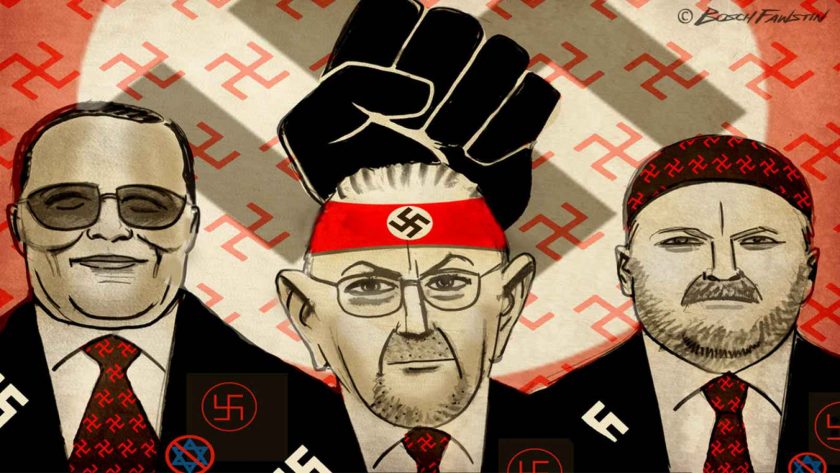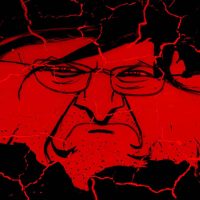When Robert Bowers walked through the door of the Tree of Life synagogue with murder on his mind, he was propelled by identity politics. As a white supremacist, his brand of identity politics is more politically incorrect than the ones that led Tamika Mallory and Linda Sarsour of the Women’s March to support Louis Farrakhan, but it’s no more violent, racist or evil.
Before the massacre, the most recent high profile anti-Semitic attack had been carried out by a Muslim who was caught on video beating a Jewish man while shouting about, “Allah” and his hatred for Jews.
Another hate crime, also caught on video, was a violent assault with a baseball bat by a black man.
Such assaults are less devastating than the mass murder of eleven people, but also much more commonplace. They repeat from month to month and year to year. They make up much of the toll of anti-Semitic hate crimes so that they top the list of hate crime statistics every single year.
The Tree of Life massacre has been greeted with editorials mourning a “loss of innocence” by American Jews. Such editorials come from a bubble of privilege that is cut off from the way many Jews live.
In 1991, New York City’s first black mayor stood and watched while a violent mob whipped up, by among others, Al Sharpton, went on a violent anti-Semitic rampage in Crown Heights. The Crown Heights Pogrom, as it would become known, took three lives and terrorized a neighborhood.
Sharpton, the black supremacist linked to the anti-Semitic violence, went on to speak at the Democratic National Convention, host a show on MSNBC and become a regular visitor to the Obama White House.
The distance between Crown Heights and Squirrel Hill is more than mere geography, it’s social and cultural. Anti-Semitic violence by black supremacists and Muslim terrorists tends to happen in poorer, urban neighborhoods and is directed against a poorer and more religious class of Jews. White supremacist attacks tend to target more suburban, prosperous and less diverse Jewish areas.
Those are home to the same Jewish populations who are much more likely to write editorials about a loss of innocence. But innocence is a privilege that Jews in poorer urban neighborhoods never had.
There are Jews who live in proximity to neo-Nazis and those who live closer to admirers of Farrakhan and Hamas. (Though Farrakhan and Hamas both admire Hitler for killing millions of Jews.) The Jewish communities that endured a generation of race riots, and another generation of muggings, knockout games, rapes and murders, before often having to pack up and move out, from their American Anatevkas in major cities, have never had any innocence of anti-Semitism, only bitter experience.
It is no coincidence that the privileged are also more likely to be progressive. The hysteria over Trump is not born of experience of anti-Semitism, but inexperience. To believe that President Trump is anti-Semitic is a confession of privilege. It’s an admission that your experience of anti-Semitism is an abstraction, a series of theories and history lessons, rather than the awareness of an everyday reality.
It takes a great deal of inexperience of anti-Semitism to believe that it exists only on the side of the political spectrum furthest from you. Anti-Semitism is tribal. Those who hate Jews tend to be losers who are convinced of their own natural superiority and blame the Jews for their failure to achieve it.
Read the full story from Front Page Mag
Want more BFT? Leave us a voicemail on our page or follow us on Twitter @BFT_Podcast and Facebook @BluntForceTruthPodcast. We want to hear from you! There’s no better place to get the #BluntForceTruth.







